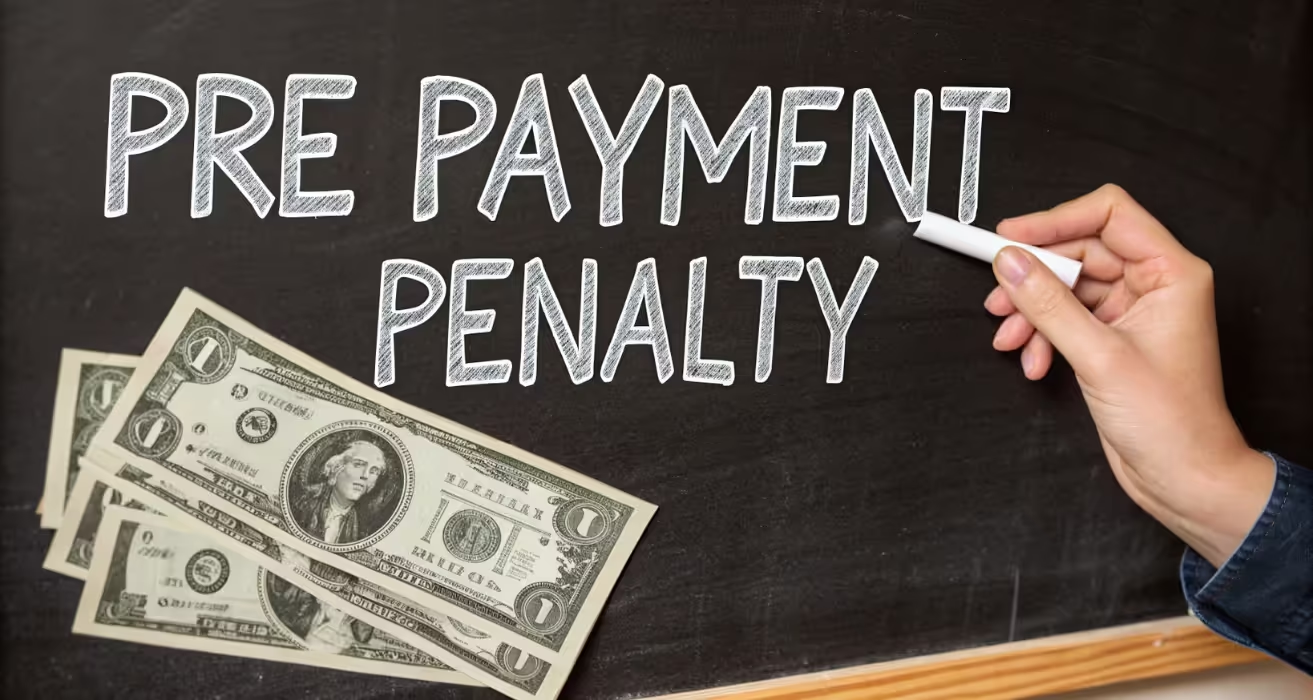Avoiding Prepayment Penalties on Your Mortgage: The Complete Guide
July 30, 2025
8 minutes

Paying off your mortgage early sounds like a dream, right? But heads up: it could cost you if you're not careful. Prepayment penalties can sneak up on you and wipe out the financial wins of an early payoff. Let's sort through the confusion and give you a clear path to avoid these unwanted fees.
Most borrowers assume that paying off a mortgage faster is always a win, but not all lenders see it that way. That’s where prepayment penalties come in. This guide breaks down how they work, why they exist, and how to navigate around them without derailing your payoff goals.
Key Takeaways:
- Understand what prepayment penalties are and how they work.
- Learn when a prepayment penalty might apply.
- Discover actionable steps to avoid unexpected charges.
- Explore borrower-friendly platforms to shop smarter.
- Know your rights and protect your savings.
What Is a Prepayment Penalty?
A prepayment penalty is a fee some lenders charge if you pay off your mortgage early. Think of it as the lender's way of recouping the interest they expected to earn over the life of your loan.
Types of Prepayment Penalties:
- Hard Prepayment Penalty: Applies if you refinance or sell the home.
- Soft Prepayment Penalty: Applies only if you refinance, not if you sell.
Pro Tip: Always ask your lender whether your loan has any form of prepayment penalty before signing.
Get Pre-Qualified and Save Up to 1.5% at Closing with reAlpha
Save up to 1.5% at closing when you combine real estate and mortgage services with reAlpha.

Why Do Prepayment Penalties Exist?
Mortgage lenders rely on long-term interest payments for profit. If borrowers pay off early, lenders lose out on expected earnings. To offset this, they sometimes include prepayment clauses.
Key Triggers for Prepayment Penalties:
- Refinancing within the first 2-5 years
- Selling your home early
- Making extra payments above the allowed thresholds
Knowing these triggers helps you plan your mortgage strategy smartly.
How to Avoid Prepayment Penalties?
Don't worry-we’ve got you covered. Here’s how you can dodge those fees:
1. Read the Fine Print: Always review your loan agreement. Look for sections mentioning "prepayment penalty," "prepayment clause," or "early payoff fee."
2. Ask Before You Sign: Before closing on a mortgage, directly ask:
- "Is there a prepayment penalty?"
- "Under what conditions does it apply?"
3. Choose a Penalty-Free Mortgage: Many modern lenders - including borrower-first platforms like reAlpha Mortgage - prioritize transparency and flexibility.
4. Time Your Payoff Strategically: If your penalty period is limited to the first few years, plan to refinance or sell afterward.
5. Negotiate Terms Upfront: Some lenders may agree to waive prepayment penalties if you negotiate assertively at the start.
The Best Tools for Mortgage Shoppers
Navigating loan options can be overwhelming. Luckily, new platforms empower you to shop smarter:
- reAlpha Mortgage: A transparent, borrower-first platform helping you secure competitive loans while avoiding hidden fees and prepayment traps.
- reAlpha: A commission-free home buying platform simplifying your homeownership journey.
These resources let you compare offers side-by-side, helping you avoid costly penalties without sacrificing the best rates.
Real-World Example: How Can Early Payoff Cost?
Imagine you secured a $250,000 loan with a 5% hard prepayment penalty within the first three years. If you pay off in year two, you could owe $12,500, a hefty fee that wipes out many refinancing gains.
That's why understanding and planning around prepayment penalties is crucial to protect your investment.
Buying a Home? Get up to 1.5% Cash Back at Closing
Get pre-approval first, then start exploring homes knowing you can receive up to 1.5% of the home price back at closing.

FAQs
How do I know if my mortgage has a prepayment penalty?
Check your loan estimate and closing disclosure. Look specifically for sections about "Prepayment Penalties."
Can I refinance to remove a prepayment penalty?
Sometimes-but beware. Refinancing might trigger the penalty if it's still within the penalty window.
Are prepayment penalties legal?
Yes, but they are regulated. Some states restrict or ban them, especially on certain loan types. Always check local laws.
How long do prepayment penalties usually last?
Typically between 1 to 5 years after loan origination.
Can paying a little extra each month trigger a prepayment penalty?
Usually no, but large lump-sum payments might; always verify your loan's terms
A Smarter Way to Buy a Home - and Save at Closing
Buying a home is a big decision - and having the right information puts you ahead. But the real advantage comes from pairing smart research with a smarter way to buy.
When you use a reAlpha real estate company, you can be eligible to receive up to 1% of the home purchase price back as a credit at closing. Add reAlpha Mortgage, and that rebate can increase to up to 1.5% back, helping offset closing costs and keep more money in your pocket when it matters most.
The rebate is simple, transparent, and applied directly at closing - no complicated hoops, no delayed payouts. Just real savings tied to using a fully integrated homebuying experience.
See how much you could save:
- Check your eligibility
- Explore homes that fit your budget today.
- Your next move could come with thousands back at closing.
Estimate your savings → Rebate Calculator
Start shopping smart - and saving smarter - at reAlpha Mortgage.
Compliance Disclosures:
- NMLS #1743790 (reAlpha Mortgage)
- Always verify individual loan terms and rates.
- Mortgage offers are subject to borrower qualification and approval.
- This is not a commitment to lend.
- Rates, terms, and conditions are subject to change without notice.
- Equal Housing Lender.
Get the latest market trends, homebuying tips, and insider updates—straight to your inbox. No fluff, just the good stuff.
Article by
As a great communicator with excellent negotiation skills, I focus more on establishing unbreakable ties between my clients, as opposed to just helping them achieve their real estate dreams. As a representative of both buyers and sellers, I understand how to lead a transaction process to ensure that the needs of both are met. My track record speaks for itself. Since I ventured into the industry in 2013 as a realtor, I have not only helped many buyers land perfect homes, but I have also assisted tons of owners and investors build wealth.